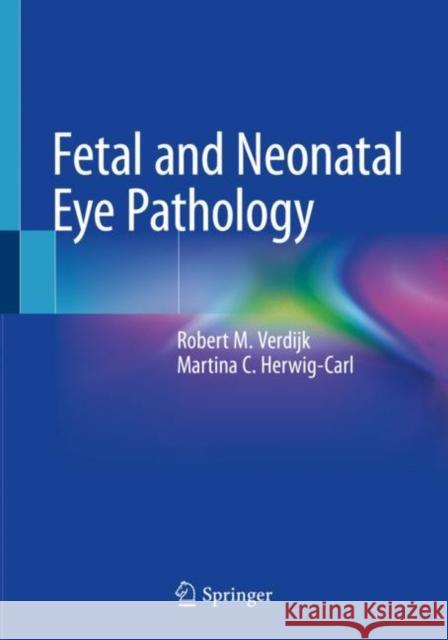Fetal and Neonatal Eye Pathology » książka



Fetal and Neonatal Eye Pathology
ISBN-13: 9783030360818 / Angielski / Miękka / 2021 / 177 str.
Fetal and Neonatal Eye Pathology
ISBN-13: 9783030360818 / Angielski / Miękka / 2021 / 177 str.
(netto: 421,70 VAT: 5%)
Najniższa cena z 30 dni: 424,07
ok. 16-18 dni roboczych.
Darmowa dostawa!
- Introduction
- Development of the eye
o Brief comments on main steps of eye development
o reference images of fetal eye development
- Handling of fetal eyes
o Removal of fetal eyes
o Grossing of fetal eyes (sketch, pictures)
o Fixation and further processing
o Special stains
- Artifacts in fetal eyes
o Associated with mechanical damage
o Associated with fixation
o Associated with autolysis
o Lange’s fold
o Lens artifacts
- Findings in syndromes (tables, case illustration)
o T13o T18
o T21
o Goldenhar-S.
o MIDAS
o Cat-Eye-S.
o Fryns-Microphthalmia-S.
o Meckel-Gruber-S.
o Lens-Microphthalmia-S.
o Walker-Warburg-S.
o …
- Findings not associated with syndromes (case illustrations)
o Anterior segment dysgenesis
o Calcifications optic nerve
o HELLP
o Microphthalmus
o …
- Findings in Newborns and Babies
o Retinopathy of prematurity (ROP)
o Shaken-Baby-Syndrome (SBS)
- Findings in fetal eyes without clinical relevance
o Embryotoxon posterioro Extramedullary hematopoiesis in the choroid
o CHRPE
Robert M. Verdijk, born in 1970 in Lisse, the Netherlands, received his training in biomedical sciences and medicine at Leiden University, followed by a Ph.D. in immunology. From 2003-2005, he worked in pediatrics and spent a year in the Neonatal Intensive Care Unit of the Erasmus MC-Sophia Children’s Hospital Rotterdam. In 2005, he started his residency in pathology at the Erasmus MC University Medical Center Rotterdam with a focus on neuropathology (Prof. Dr. J.M. Kros), ophthalmic pathology (Dr. C.M. Mooy) and pediatric pathology (Prof. Dr. R.R. de Krijger). Since 2010, he has been a consultant in ophthalmic pathology, neuropathology and pediatric pathology at the Erasmus MC University Medical Center and since 2017 senior consultant in ophthalmic- and neuropathology at the Leiden University Medical Center. He performs over 100 fetal autopsies each year and serves as a national reference consultant ophthalmic pathologist for the Netherlands Forensic Institute in cases of suspected abusive head trauma. His research activities include the pathobiology of ocular melanoma, periorbital inflammatory disease, the pathobiology of nerve sheath tumors and developmental pathology. He has published over 100 peer-reviewed articles and authored chapters in 3 textbooks on ophthalmic pathology. He is a member several societies, for example the European Ophthalmic Pathology Society (EOPS), the working group Ophthalmic Pathology of the European Society of Pathology (ESP), Euro CNS and the Vereinigung Deutschsprachige Ophthalmo-Pathologen (DOP). He is board member of the Ocular Oncology Group (OOG).
Martina C. Herwig-Carl, born in 1981 in Dortmund, Germany, attended Medical School at the Ruhr University Bochum (2000-2006). She then started her residency in ophthalmology in 2007 at the University Eye Department Bonn including training in Ophthalmic Pathology (Prof K. U. Löffler). In 2010/2011, she received a research grant from the German Research Foundation (DFG), which allowed her to complete a research fellowship with Professor Grossniklaus at the L. F. Montgomery Ophthalmic Pathology Laboratory (Emory Eye Clinic) in Atlanta, USA. Back in Bonn, she completed her residency in 2012. In 2015, she consolidated her numerous studies on fetal eyes in her “habilitation”, enabling her to work as a “Privatdozentin”. She currently works as consultant/assistant professor at the University Eye Department Bonn with specialization in oncology, oculoplastic surgery, cornea, and ophthalmic pathology (including routine evaluation of fetal eyes). To date, she has evaluated more than 1000 fetal eyes. Her research activities include further studies on fetal ocular development as well as on the pathobiology of uveal melanoma. She has authored several textbook chapters in nine books and published over 50 peer-reviewed articles. She is a member of the European Ophthalmic Pathology Society (EOPS), the Deutsche Gesellschaft für fetale Entwicklung (DGFE) and the Deutsche Ophthalmologische Gesellschaft (DOG) including the Sektion Deutschsprachiger Ophthalmopathologen (DOP).
This richly illustrated book discusses the fetal eye, offering a brief introduction to the topic and discussing its development and treatment. The high-quality reference images allow the morphological fetal age to be determined, and the authors provide examples of artifacts and real-world findings to simplify histopathological diagnosis. The book also discusses findings in fetal eyes, presenting typical examples of common malformations, including clinical and histological pictures as well as additional findings from other specialties (such as neuropathology, genetics). In addition, it covers non-specific ocular malformations. It particularly addresses documentation and interpretation of cases of suspected Shaken-Baby Syndrome, which is of forensic importance. In the context of retinopathy of prematurity, histopathological and clinical findings are correlated.
The book provides reference images of fetal development and guidelines on grossing and handling fetal eyes, and also explores the complicated topic of artifacts, including case illustrations with comprehensive information concerning other specialties. Lastly it discusses clinically and forensically relevant findings in newborns. It guides ophthalmic and pediatric pathologists in the interpretation of ocular findings, helping to narrow down differential diagnoses in fetal pathology, while at the same time serving as a valuable tool for specialists who do not have a great deal of experience in the examination of fetal eyes.
1997-2026 DolnySlask.com Agencja Internetowa
KrainaKsiazek.PL - Księgarnia Internetowa









